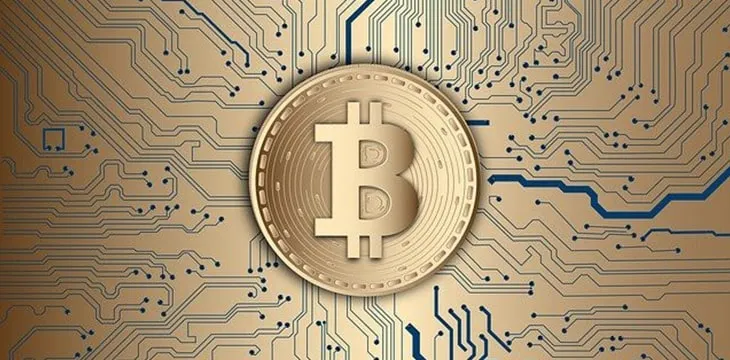|
Getting your Trinity Audio player ready...
|
This post originally appeared on Medium, and we republished with permission from its author Zvinodashe Mupambirei. Read the full piece here.
A bit of history
The two blockchains have a shared history that dates back to the 8th of January 2009 when Satoshi Nakamoto released the Bitcoin white paper. The introduction of SegWit that would enable Lightning Network saw another chain emerge namely Bitcoin Cash. At the heart of these forks were debates related to how best to scale Bitcoin. Bitcoin Cash felt increasing block size was the best way to scale Bitcoin and opposed SegWit.
SegWit was considered as a measure that would not only break Bitcoin as envisioned in the whitepaper but potentially its validity. The emergence of Bitcoin SV was on the 15th of November 2018 (block number 556766). This was a result of differences with Bitcoin Cash on issues such as block size, on-chain scaling, anonymity, and consensus algorithm. Bitcoin sees its rebirth date as the 4th of February 2020 (Genesis Upgrade). Genesis upgrade was focused on realigning the protocol with Satoshi’s Whitepaper by correcting on the limitations introduced in Bitcoin.
It restores the original Bitcoin protocol, will keep it stable, and allow it to massively scale. Bitcoin SV will maintain the vision set out by Satoshi Nakamoto’s white paper in 2008. → https://bitcoinsv.io
Bitcoin SV is superior in payments
Ironically, many are still fervently searching for blockchain killer-app. Whereas, Satoshi in the abstract of the whitepaper describes “A purely peer-to-peer version of electronic cash…” Additionally, in the introduction, emphasis is on supporting trustless internet commerce which must also be capable of supporting small casual transactions (micropayments).
Bitcoin with its current 7 transactions per second capacity pales in comparison to the Bitcoin SV record of over 50,000 transactions per second reached in 2021. Bitcoin SV focuses on unbounded scaling by allowing for bigger blocks. Bitcoin SV supports block sizes up to 4GB. The largest block so far was 3.8GB at block number 725511. Bitcoin SV with Teranode on the horizon is aiming for unbounded blocks size to bring about massive scaling that can truly handle global commerce. Big blocks on Bitcoin SV facilitate lower average transaction fees which enable micropayments.
With micropayments, poor countries, machine-to-machine transactions, IoT, are not excluded from the blockchain. Additionally, Bitcoin SV through proper usage of SPV, merchant APIs allows for fast instant transactions. While Lightning Network in its purest form and Liquid Network give hope to BTC, they remain work in progress, considered complex (technical and legal challenges), may even reintroduce trusted third parties, and susceptible to attacks.
The existing Visa credit card network processes about 15 million Internet purchases per day worldwide. Bitcoin can already scale much larger than that with existing hardware for a fraction of the cost. It never really hits a scale ceiling. → Satoshi Nakamoto
Bitcoin SV is superior in smart contracts
Ethereum blockchain was born out of Bitcoin, out of the belief that Bitcoin Script is incapable of handling advanced smart contracts. For long time many debates raged on whether Bitcoin was Turing complete. Dr. Craig Wright has written and discussed extensively Turing completeness. Whilst some experts consider it not Turing complete and many of the topics and concepts around Turing completeness are beyond my understanding, thankfully the proof is in the pudding.
sCrypt a smart contract language on Bitcoin SV not only brought about smart contract functionality directly on Bitcoin on-chain but potentially proves that Bitcoin Script is Turing complete. What is important is that Bitcoin SV supports advanced smart contracts without the need for extensions, adoptions to protocol, Layer2, side-chains, or other solutions. Whereas Bitcoin may have introduced changes like SegWit, and Taproot to facilitate more complex smart contracts we have not seen anything of the scale of NFTs, Tokens, DeFi, Decentralised Exchanges, etc take off on the network or Bitcoin Layer2 networks as intended.
The closest solution in BTC for advanced smart contracts written in Clarity is a blockchain Stacks that leverage BTC security. Clarity is a Lisp-like language, good luck with developer adoption. Meanwhile, sCrypt is Solidity-like, whereas Solidity is JavaScript-like. Additionally, a game-changer is a Bitcoin SV transpiler that converts Ethereum Solidity Smart contracts into Bitcoin SV scripts. Bitcoin SV is not competing with BTC but various smart contract blockchains such as Ethereum, Solana, Algorand, and more. However, many of the blockchains have scaling challenges or have sacrificed decentralisation or security to scale. Interestingly, compared to Ethereum account model, Bitcoin SV UTXO model showers it with scaling, security, and more benefits.
Video below is from Global Blockchain Convention Dubai 2022 on Smart Contracts and Computation on BSV by Xiaohui Liu — Founder & CEO, sCrypt Inc . Learn about smart contracts and sCrypt capabilities on Bitcoin SV
https://www.youtube.com/watch?v=c_zAlkImgTU
Updated to official CoinGeek video above. To view previously embedded video with Full Day 3 Global Blockchain Convention Dubai 2022 visit link https://youtu.be/RzSCrXf1Ywc
Bitcoin SV is superior in stability
Bitcoin SV is clear in its plans and roadmap to build a stable protocol moulded along the likes of TCP/IP to bring certainty for enterprises, users, and stakeholders wishing to make use or implement blockchain-based technologies. Bitcoin SV is clear that power must never rest in the hands of developers, miners, investors, pioneers, or anyone. BTC has largely been reduced to a digital gold narrative and ‘hodl’ mantra. Sadly, the very scarcity (fixed money supply of 21 million coins) it relies on to be digital gold may be at risk. With a small block size resulting in low fee income relative to block subsidy, what will incentivise miners as the block subsidy reduces? There is no telling if the cap will be removed or the block size is increased?
Imagine the excitement in individuals from third-world countries who learn the promise of blockchain to democratise payments and participation in economic systems after discovering BTC. Imagine the despair when they realise high fees censor them from participating. Imagine the despair when they are sold a digital gold narrative that is shaky. Surprisingly, BTC continues to be a highly volatile and highly speculative asset. Bitcoin SV Association is concerned with advancing Bitcoin SV as a regulation-friendly ecosystem. Code is law, you will scream at me. However, the reality is the real world and blockchain world need to be aligned. Must theft or illegal activities on blockchains become okay because it was run by code? Code can’t be law if the protocol is not fixed in stone, and developers have too much power.
Final words
I feel Bitcoin SV stands a greater chance of reaching wider adaption due to superior stable protocol, payments, and smart contract capabilities. The ecosystem is growing fast due to the focus on building projects. There are many resources to get started learning more about Bitcoin SV such as the Bitcoin SV Academy which teaches topics like Bitcoin Theory, Development, and Infrastructure. This is not financial advice, but I foresee Bitcoin SV retaining its top 10 market capitalisation soon. As the title of my article states, this is how I feel so may not be a balanced presentation of topics. This article was quickly put together to put in writing what I recently debated with a fellow crypto and blockchain enthusiast. I encourage you to do your own research.
Watch: The BSV Global Blockchain Convention panel, The Future World with Blockchain
https://www.youtube.com/watch?v=v9hDGDoy1mM

 07-02-2025
07-02-2025 





